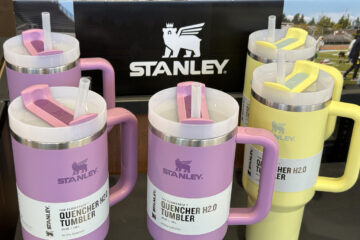Car manufacturers are competing to build battery plants as the push to adopt the purchase of more EVs is increasing.
Toyota TM is the latest auto manufacturer that is joining the highly competitive field to build batteries for electric vehicles.
The Japanese automaker said on Aug. 31 it will spend another $2.5 billion in its battery plant in North Carolina, called the Toyota Battery Manufacturing North Carolina.
The investment at its newest North American facility will increase capacity to support battery production. Toyota plans to hire another 350 employees for a total of 2,100 workers.
The production of batteries for hybrid electric vehicles (HEV) and battery electric vehicles (BEV) will begin in 2025.
Toyota said last year it plans to invest heavily in electrification and plans to spend a total of $70 billion, plus a total of $5.6 billion for battery production, which includes the new North Carolina investment.
“This marks another significant milestone for our company,” said Norm Bafunno, senior vice president, Unit Manufacturing and Engineering at Toyota Motor North America in a statement. “This plant will serve a central role in Toyota’s leadership toward a fully electrified future and will help us meet our goal of carbon neutrality in our vehicles and global operations by 2035.”
The Liberty, N.C., plant will be the first to produce lithium-ion batteries for Toyota in North America. Toyota invested $1.29 billion for battery production initially and the total investment is $3.8 billion.
Toyota sells hybrid and hydrogen fuel cell vehicles, and its strategy is to make inroads into the battery vehicle market, which is becoming more saturated as Volkswagen and Tesla compete for the most sales.
Demand for EVs Is Growing
The addition of electric vehicle battery plants is growing in the U.S. as state legislators push for a ban on gasoline-powered cars.
EV manufacturers have gained traction in the U.S. as a number of them invest billions of dollars into constructing their own battery plants. The investment in these plants coincides as EVs gain in acceptance and popularity among consumers and as auto manufacturers are working to control their supply chains which were pummeled during the height of the pandemic.
State government leaders, such as California Gov. Gavin Newsom, are also seeking to ban gasoline-powered cars, which will make an impact since California makes up about one-third of the U.S. auto market. The California Air Resources board on Aug. 25 approved regulations that stop the sale of new gas-engine cars in 2035.
The push to eliminate the sale of internal-combustion-engine vehicles is also gaining strength as several states have said they plan to adopt California’s stricter rules on car emissions. Several states, including Washington, Oregon, Massachusetts and New York, have adopted similar zero-emission-vehicle standards.
JV Will Construct a Battery Factory
Honda Motor (HMC) – Get Honda Motor Company Ltd. Report said on Aug. 29 that it would construct a lithium-ion-battery factory in a $4.4 billion joint venture with LG Energy Solutions.
The companies said that construction would begin in early 2023 with mass production of the advanced lithium-ion battery cells by the end of 2025.
The plant seeks to have a production capacity of about 40GWh each year.
Neither company specified where the plant would be built, but sources told the Wall Street Journal that it would be built in Ohio.
Honda already has an Marysville, Ohio, auto plant, built in 1982, that produces the Honda Accord sedan and coupe, plus the the Acura TLX and ILX, for customers in over 100 countries.
Honda entered the EV market later than its competitors and said more than a year ago that it planned to manufacture only EVs. By 2040, the Japanese automaker plans to switch over entirely to electric and fuel-cell vehicles.


